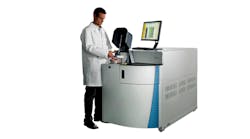Atlas Castings & Technology, an AmeriCast Technologies Inc. division in Tacoma, WA, reports it will appeal citations issued to it by the Washington State Department of Labor & Industries. The agency also fined Atlas Casting over $19,000 for workplace safety violations.
The agency's investigation concerns a fire and explosion on October 6, 2007, in which four foundry workers were injured and the driver of a liquid propane-fuel delivery truck was killed. The incident reportedly caused nearly $10 million in damages to Atlas Castings & Technology and nearby businesses.
Duane Britschgi, president of Atlas Castings & Technology, stated: "Although Atlas was cited, it is important to note that the L&I investigation is quite limited in its scope and it does not address the responsibilities of others involved in this incident. It is equally important that none of the issues for which we were cited caused the fire or explosion that injured the delivery truck driver, Charles McDonald."
There are four citations against Atlas Castings:
- The first concludes that Atlas failed to train two employees on the repair and maintenance of the propane system. The foundry contends these were not the employees’ duties, and that they would not have tried to fix the system had they not been urged and directed to do so by McDonald.
- A second citation faults Atlas using hose couplings that, would not withstand the minimum pressure required. Atlas says the agency did not conduct performance testing to validate this opinion, and the use of the couplings was the responsibility of the driver.
- A third citation blames the foundry for not testing the hose after the attempted repairs, but Atlas states that its employees did not place the hose into use before the tests could occur, because that was McDonald’s responsibility.
- The final citation finds Atlas responsible for not providing a backflow-prevention device closer to the site where the delivery hose was connected. However, the foundry stated, the evidence “shows that the system did have a backflow device in place. The backflow device was installed along with the original system in the early 1950s, at which time it was in full compliance with the then current codes and no upgrades have since been required.”
Atlas says all of the alleged violations have been abated because the propane system was dismantled and removed, and it will not be replaced.
Atlas Castings objects to the fact that the Dept. of Labor & Industries limited its investigation to the foundry and its employees, and emphasized that the truck driver was an independent contractor. The truck was owned by IXL Transportation Services, which was hired to deliver the gas that Atlas purchased. The agency had no jurisdiction to investigate IXL’s responsibilities in this case, Atlas points out.
It is the foundry’s position that the driver, McDonald, “knowingly violated federal regulations when he failed to immediately ‘red tag’ the propane delivery hose system. Red tagging is done to alert users to necessary repairs that must be completed by appropriately trained and licensed technicians.
“Instead,” Atlas Castings maintains in its statement, “McDonald violated the clear directive in the regulations when he urged and directed Atlas employees to assist him with attempted repairs to the damaged hose coupling. He, again, knowingly violated federal regulations when he personally connected the repaired hose to the tanker trailer before federally required pressure testing could be completed to ensure its safety. McDonald was the only party involved in the incident that was trained and licensed to use the equipment.”
The family of Charles McDonald filed a lawsuit against Atlas in February, contending his was an unlawful death. An attorney for the family told
The Seattle Times that the Dept. of Labor & Industries investigation supports their allegation that Atlas workers failed to follow safety regulations prior to the accident, which require them to reattach a delivery hose to transfer the propane from the truck to a storage tank.
"Atlas cut so many corners ... They used parts sitting around the yard and just threw this thing together," said attorney James McCormack told the newspaper.
Atlas has countersued the McDonald estate; IXL Transportation Services, which had McDonald under contract; Engineered Controls International Inc., the manufacturer of the emergency shut-off valve; and Pro-Techs Inc., a company that modified the valve — all because of “excessive damages to (Atlas Castings’) property and equipment.”
The foundry says IXL Transportation Services is responsible for ensuring that its trailers are properly inspected, maintained, and equipped, and that all safety equipment operates correctly.
The state agency referred these issues to the Federal Department of Transportation, which has jurisdiction to investigate them.
In addition, forensic consultants hired by Atlas have concluded that federally mandated safety devices on the tanker truck’s liquid-propane delivery valve, manufactured by Engineered Controls International failed to operate and close the valve, which caused the release of liquid propane gas that led to the fire and explosion. The forensic investigation also concluded that alterations to the delivery valve and safety devices by Pro-Techs Inc. were at least partly responsible for the failure of the valve to close.
"Our hearts go out to the family of Charles McDonald for the terrible loss they have suffered," Britschgi stated. "Yet, it remains clear that had McDonald followed federal regulations and ‘red tagged’ the system on his initial inspection, this terrible tragedy would have never occurred."








